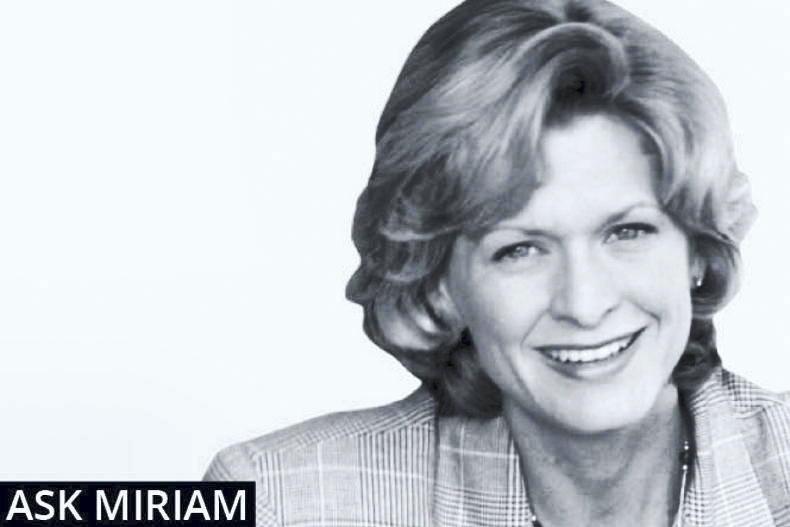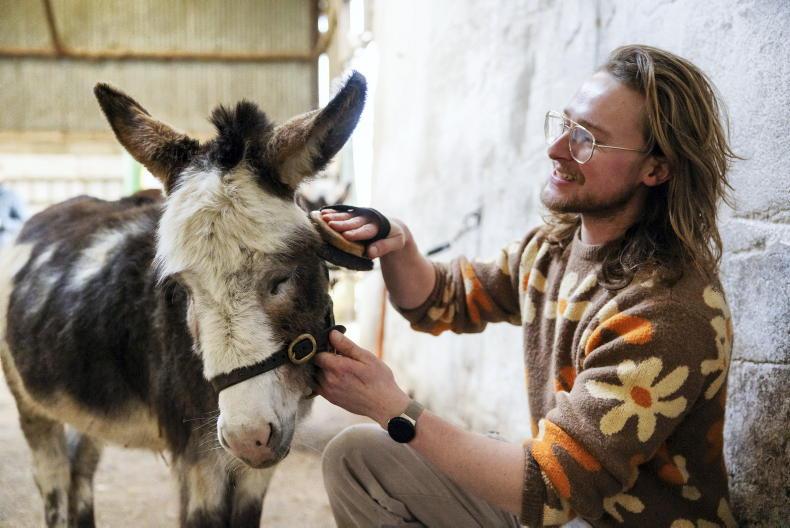That’s an unusual name?” I remember asking someone who had just introduced me to their new daughter. “Is it in the family?” I queried.
“Yes, it is the name of my aunt.”
“The one that owns the land and is not married. That’s a bit of coincidence,” I said, joking.
With all the different possibilities of what you name your children, some people have different reasons for picking the first or middle name for their children.
However, as Clare O’Keeffe from Succession Ireland has come across, it is the last name that has the most power when it comes to the way people think about succession planning.
Clare talked me through one case study that really highlighted the point. There was an elderly women, Freda O’Brien, who had not married but farmed away on her own. In recent years, as she got older, her nephew Joe Daly, her sister’s son, helped her out.
Freda got ill suddenly and had to go into hospital and then into a nursing home. Joe loved farming and took over the running of the farm for Freda, which has around 50 acres of good land with a house in the middle of it and another 70 acres of hill land a short distance away.
Interestingly, Clare told me, Freda had farmed right up to the day she went to hospital, but the farm did not come under the Fair Deal Scheme. I will return to this later.
The arrangement continued for a few years, and Joe put in a lot of hours working on the farm. When Freda died and the will was read, there were clear instructions about the land and the house. Joe was to get the 50 acres.
However, his cousin, Thomas O’Brien, who had left the country years ago, was to get not only the hill land but also the family home. The house was bang in the middle of the 50 acres willed to Joe.
Clare left me to figure out the reason why. It took a few seconds. “Is it because of the last name,” I asked?
“Yes,” said Clare. “I have come across a number of cases where the will has been written specifically to ensure someone with the family name gets the home farm. It’s more common that you think,” said Clare.
Well, Thomas was delighted to get the call out of the blue from the solicitor. He had no positive memories of a relationship with his cousin Joe, so the first meeting was a bit frosty.
None of the options – such as swapping the house that was in the middle of Joe’s land – were entertained.
Because Joe worked on the farm, he qualified as a favourite nephew, which means he increased the tax-free threshold up to €310,000. He would also have received agricultural relief, as his assets outside the farmland were less than 20%. This brought his gift-tax liability down to zero.
Thomas, on the other hand, would only have a gift-tax threshold of €32,500 and would not qualify for agriculture relief. They looked at all the options of selling or swapping land, but it soon became obvious that no workable, harmonious solution could be arrived at between the pair.
In the end, it was the most unlikely solution. They went into partnership, with Joe doing all the farming. Thomas was a silent partner and was allowed visit the farm once or twice a year. A partnership to keep them apart: it was ironic, said Clare.
For me, it showed how strange the whole area of succession can be and how it can cause major rifts if not thought out properly, from both a short- and long-term perspective. CL
>> Succession-planning workshop
Start the conversation early with our targeted two-day succession planning workshops. Every family farm and small business is grappling with the same issues around succession planning. The Irish Farmers Journal and Succession Ireland are coming together to run targeted two-day workshops to help families start the conversation and develop their own succession plan.
The aim is to get couples or farm owners to take time away from their daily routine to focus on the options and help develop a workable, harmonious succession plan.
It allows you to be proactive. The earlier the thought process begins, the more options and opportunities are available.
The two-day course is specifically focused on the succession process. This is an opportunity to contemplate your family succession plan in a tranquil environment, away from the farm. You get to meet other people in the same situation and hear from experts in legal, accounting and family communications areas. You will leave with a plan and actions on how to progress.
This course is essential to you if:
• A member of your family wants to join in the family business.• A successor is identified and nothing is sorted, except their pocket money.• A second enterprise is being considered by one party.• Partners don’t support the expansion venture.• The children have flown the nest, and physically this workload cannot continue indefinitely.• No one is interested /available to take over the business.• No family management skills.• The unplanned happens, like marriage breakdown, serious ill -health, sudden death.• Communication has broken down in the family.• Poor inter-generational communication skills.• You are concerned for your future.• A major change in the business strategy is needed or has occurred.• Don’t know where nor how to start the conversation.The workshop is aimed to assist you in creating a harmonious, workable inter-generational succession plan and enable you to be proactive with the family in the discussion. The price of the course is €350 per person or €600 per couple. The price includes on overnight stay in a four-star hotel, dinner, lunches and teas and coffees. Places are limited and couples are encouraged to come. You can get a break away and make plans that will ensure you have a successful succession plan.
BOOK NOW
The workshops are being held on 14 and 15 November at Lakeside Hotel Killaloe, Co Clare and Nov 22- 23 at Knightsbrook Hotel, Trim, Co Meath. To book a place at the course in either venue, phone 01-4199525, visit www.farmersjournal.ie/booking, email succession@farmersjournal.ie.
That’s an unusual name?” I remember asking someone who had just introduced me to their new daughter. “Is it in the family?” I queried.
“Yes, it is the name of my aunt.”
“The one that owns the land and is not married. That’s a bit of coincidence,” I said, joking.
With all the different possibilities of what you name your children, some people have different reasons for picking the first or middle name for their children.
However, as Clare O’Keeffe from Succession Ireland has come across, it is the last name that has the most power when it comes to the way people think about succession planning.
Clare talked me through one case study that really highlighted the point. There was an elderly women, Freda O’Brien, who had not married but farmed away on her own. In recent years, as she got older, her nephew Joe Daly, her sister’s son, helped her out.
Freda got ill suddenly and had to go into hospital and then into a nursing home. Joe loved farming and took over the running of the farm for Freda, which has around 50 acres of good land with a house in the middle of it and another 70 acres of hill land a short distance away.
Interestingly, Clare told me, Freda had farmed right up to the day she went to hospital, but the farm did not come under the Fair Deal Scheme. I will return to this later.
The arrangement continued for a few years, and Joe put in a lot of hours working on the farm. When Freda died and the will was read, there were clear instructions about the land and the house. Joe was to get the 50 acres.
However, his cousin, Thomas O’Brien, who had left the country years ago, was to get not only the hill land but also the family home. The house was bang in the middle of the 50 acres willed to Joe.
Clare left me to figure out the reason why. It took a few seconds. “Is it because of the last name,” I asked?
“Yes,” said Clare. “I have come across a number of cases where the will has been written specifically to ensure someone with the family name gets the home farm. It’s more common that you think,” said Clare.
Well, Thomas was delighted to get the call out of the blue from the solicitor. He had no positive memories of a relationship with his cousin Joe, so the first meeting was a bit frosty.
None of the options – such as swapping the house that was in the middle of Joe’s land – were entertained.
Because Joe worked on the farm, he qualified as a favourite nephew, which means he increased the tax-free threshold up to €310,000. He would also have received agricultural relief, as his assets outside the farmland were less than 20%. This brought his gift-tax liability down to zero.
Thomas, on the other hand, would only have a gift-tax threshold of €32,500 and would not qualify for agriculture relief. They looked at all the options of selling or swapping land, but it soon became obvious that no workable, harmonious solution could be arrived at between the pair.
In the end, it was the most unlikely solution. They went into partnership, with Joe doing all the farming. Thomas was a silent partner and was allowed visit the farm once or twice a year. A partnership to keep them apart: it was ironic, said Clare.
For me, it showed how strange the whole area of succession can be and how it can cause major rifts if not thought out properly, from both a short- and long-term perspective. CL
>> Succession-planning workshop
Start the conversation early with our targeted two-day succession planning workshops. Every family farm and small business is grappling with the same issues around succession planning. The Irish Farmers Journal and Succession Ireland are coming together to run targeted two-day workshops to help families start the conversation and develop their own succession plan.
The aim is to get couples or farm owners to take time away from their daily routine to focus on the options and help develop a workable, harmonious succession plan.
It allows you to be proactive. The earlier the thought process begins, the more options and opportunities are available.
The two-day course is specifically focused on the succession process. This is an opportunity to contemplate your family succession plan in a tranquil environment, away from the farm. You get to meet other people in the same situation and hear from experts in legal, accounting and family communications areas. You will leave with a plan and actions on how to progress.
This course is essential to you if:
• A member of your family wants to join in the family business.• A successor is identified and nothing is sorted, except their pocket money.• A second enterprise is being considered by one party.• Partners don’t support the expansion venture.• The children have flown the nest, and physically this workload cannot continue indefinitely.• No one is interested /available to take over the business.• No family management skills.• The unplanned happens, like marriage breakdown, serious ill -health, sudden death.• Communication has broken down in the family.• Poor inter-generational communication skills.• You are concerned for your future.• A major change in the business strategy is needed or has occurred.• Don’t know where nor how to start the conversation.The workshop is aimed to assist you in creating a harmonious, workable inter-generational succession plan and enable you to be proactive with the family in the discussion. The price of the course is €350 per person or €600 per couple. The price includes on overnight stay in a four-star hotel, dinner, lunches and teas and coffees. Places are limited and couples are encouraged to come. You can get a break away and make plans that will ensure you have a successful succession plan.
BOOK NOW
The workshops are being held on 14 and 15 November at Lakeside Hotel Killaloe, Co Clare and Nov 22- 23 at Knightsbrook Hotel, Trim, Co Meath. To book a place at the course in either venue, phone 01-4199525, visit www.farmersjournal.ie/booking, email succession@farmersjournal.ie.








SHARING OPTIONS